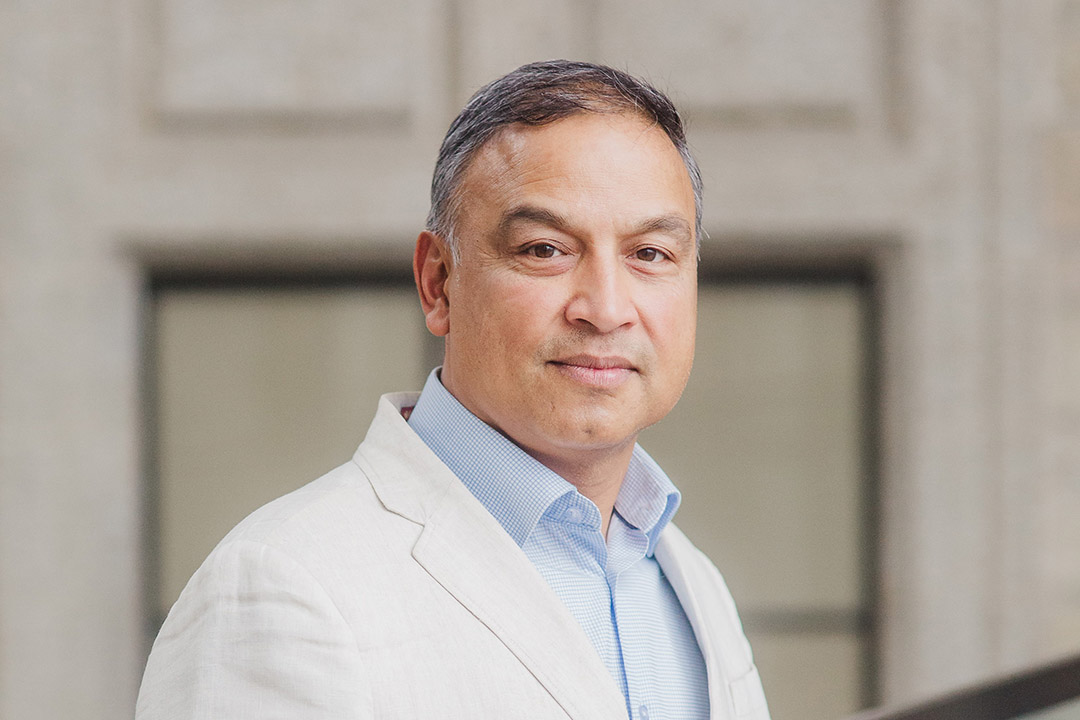
USask-led research program examines Canadian trust in public health
Trust in public health care is vital to its success, and that trust has been tested over the past five years like never before.
By Matt Olson, Research Profile and ImpactIn the wake of the COVID-19 pandemic, researchers are looking for answers about why trust in health care and medical care across Canada changed, and how that trust could be regained.
Dr. Nazeem Muhajarine (PhD), a professor in Community Health and Epidemiology in the University of Saskatchewan’s (USask) College of Medicine and the director of the Saskatchewan Population Health and Evaluation Research Unit, said we are already seeing some of the consequences of an eroding of trust in public health – and now more than ever regaining that trust is important.
“We haven’t seen the last of infectious diseases in Canada or elsewhere, for that matter. We are seeing a resurgence of measles, or avian flu, for example. And there are vaccines for measles, and vaccines for avian flu are in standby,” he said. “We need to be talking about trusting vaccines, and how to build and rebuild trust in public health.”
The “Trust Dynamics and Equity in Public Health Project” led by USask researchers with the Coronavirus Variants Rapid Response Network (CoVaRR-Net), investigated the trust of Canadians in the information and efficacy of the public health system following the worst of the COVID-19 pandemic.
Muhajarine said in the Trust Dynamics project, he had seen an erosion of public trust in scientists and medical care providers over the course of the pandemic.
And with a better understanding of the why, Muhajarine believes they can make more informed decisions on repairing that trust.
“What do we need to ask the government, public health institutions, our medical providers, our scientists ... to do to rebuild trust?” Muhajarine said. “Building trustworthiness in public institutions is the challenge that we face at this time.”
By using both quantitative data from surveys and qualitative data from interviews, the Trust Dynamics project, Muhajarine said the project had three main goals: to measure the level of public trust in government, in institutions, and in social and personal networks from Canadians coast to coast to coast, whether trust levels were different for different equity-seeking groups of people, and to assess the trust level for vaccinations among Canadians.
Trust was measured across eight sources: provincial government, federal government, public health authorities, health scientists, medical care providers, traditional media, social media and the personal network of friends, family and faith leaders. Of those eight sources, trust in health scientists was reported at the highest rate of 72 per cent, and social media was lowest at 11 per cent.
Muhajarine said there were a few surprises in the early analysis of data, such as new Canadians reporting higher levels of trust in the provincial and federal governments than those born in Canada. In addition, women had a lower proportion of trust compared to men in public health institutions.
“Now, even more than when we started this project a year ago and even compared to the first four years of the pandemic, issues of trust in government, public institutions, confidence in each other, our families, our communities, has never been more important,” Muhajarine said. “The results from this project on the changing nature of trust ... are critical. We plan to share these results with everyone.”
He added that creating a discourse of how to restore trust with all Canadians, especially with those who reported that they have lost the most trust during the COVID-19 pandemic, would be crucial as we move into the future. Directing efforts at those who reported the highest levels of distrust is an important next step.
“We can use the information from this study to specifically address people and communities where trust has eroded,” Muhajarine said. “We can provide this information to public health authorities and to governments and start rebuilding trust in people.”
With the information gained from the study, Muhajarine said he hopes all those institutions who have seen trust falter over the past five years will develop new forms of outreach and communication to rebuild some of what has been lost.
CoVarr-Net was a network of Canadian scientists joined together in a multidisciplinary pursuit of knowledge and understand of COVID-19 and its variants which ceased operation on March 31, 2025. The research program began as part of CoVaRR-Net's eighth “Pillar” of study, Public Health, Health Systems & Social Policy Impacts. Muhajarine is a co-lead of Pillar 8 along with USask’s Dr. Cory Neudorf (MD), a professor of Community Health and Epidemiology in USask’s College of Medicine.
To hear more from USask experts about the changing landscape of trust in medical care providers and Canada’s public health institutions, listen to this episode of the USask Signature Series Podcast.
Together, we will undertake the research the world needs. We invite you to join by supporting critical research at USask.

